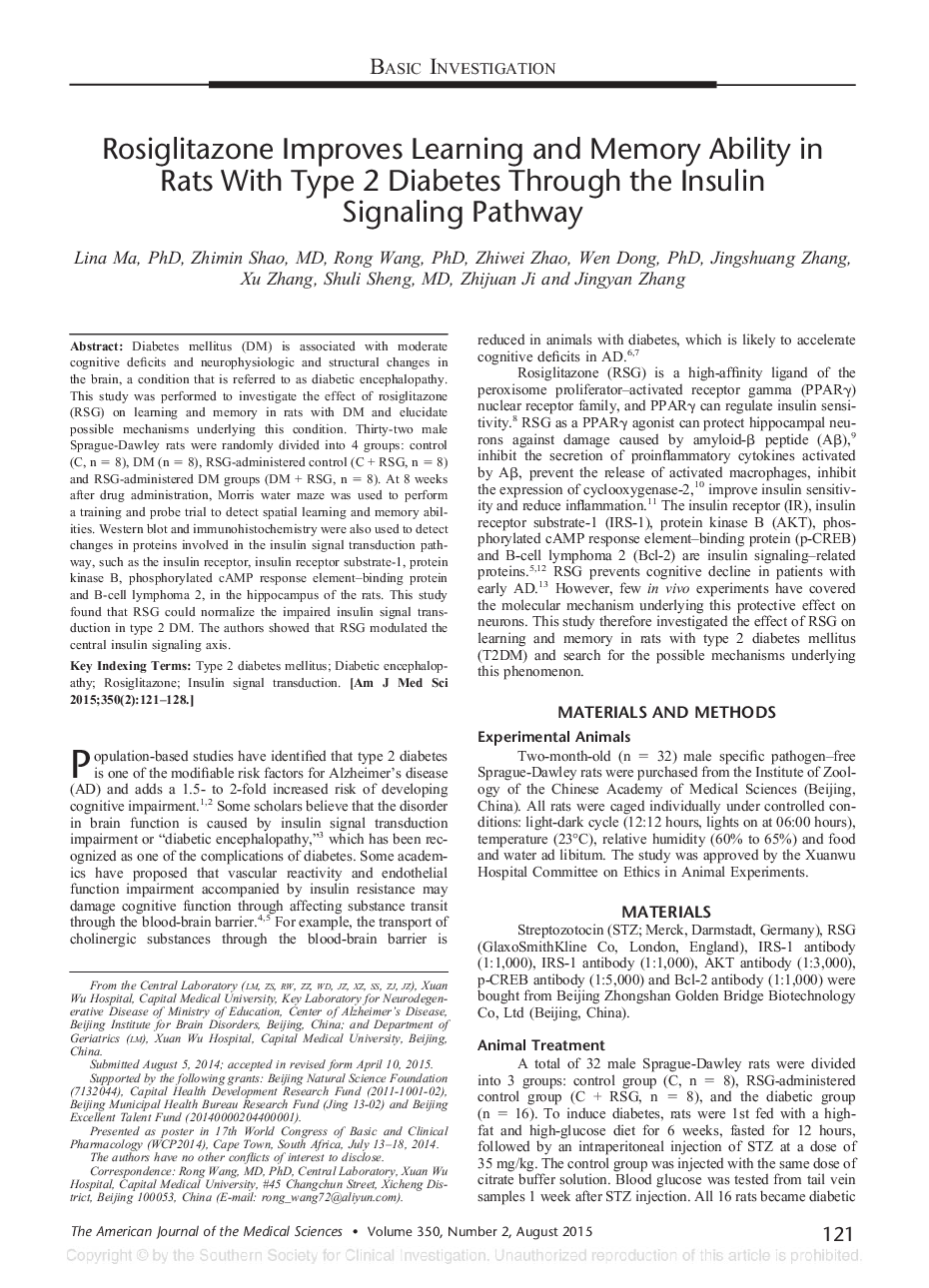| Article ID | Journal | Published Year | Pages | File Type |
|---|---|---|---|---|
| 2863350 | The American Journal of the Medical Sciences | 2015 | 8 Pages |
Abstract
Diabetes mellitus (DM) is associated with moderate cognitive deficits and neurophysiologic and structural changes in the brain, a condition that is referred to as diabetic encephalopathy. This study was performed to investigate the effect of rosiglitazone (RSG) on learning and memory in rats with DM and elucidate possible mechanisms underlying this condition. Thirty-two male Sprague-Dawley rats were randomly divided into 4 groups: control (C, n = 8), DM (n = 8), RSG-administered control (C + RSG, n = 8) and RSG-administered DM groups (DM + RSG, n = 8). At 8 weeks after drug administration, Morris water maze was used to perform a training and probe trial to detect spatial learning and memory abilities. Western blot and immunohistochemistry were also used to detect changes in proteins involved in the insulin signal transduction pathway, such as the insulin receptor, insulin receptor substrate-1, protein kinase B, phosphorylated cAMP response element-binding protein and B-cell lymphoma 2, in the hippocampus of the rats. This study found that RSG could normalize the impaired insulin signal transduction in type 2Â DM. The authors showed that RSG modulated the central insulin signaling axis.
Related Topics
Health Sciences
Medicine and Dentistry
Cardiology and Cardiovascular Medicine
Authors
Lina PhD, Zhimin MD, Rong PhD, Zhiwei PhD, Wen MD, Jingshuang Zhang, Xu Zhang, Shuli Sheng, Zhijuan Ji, Jingyan Zhang,
